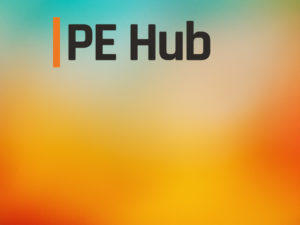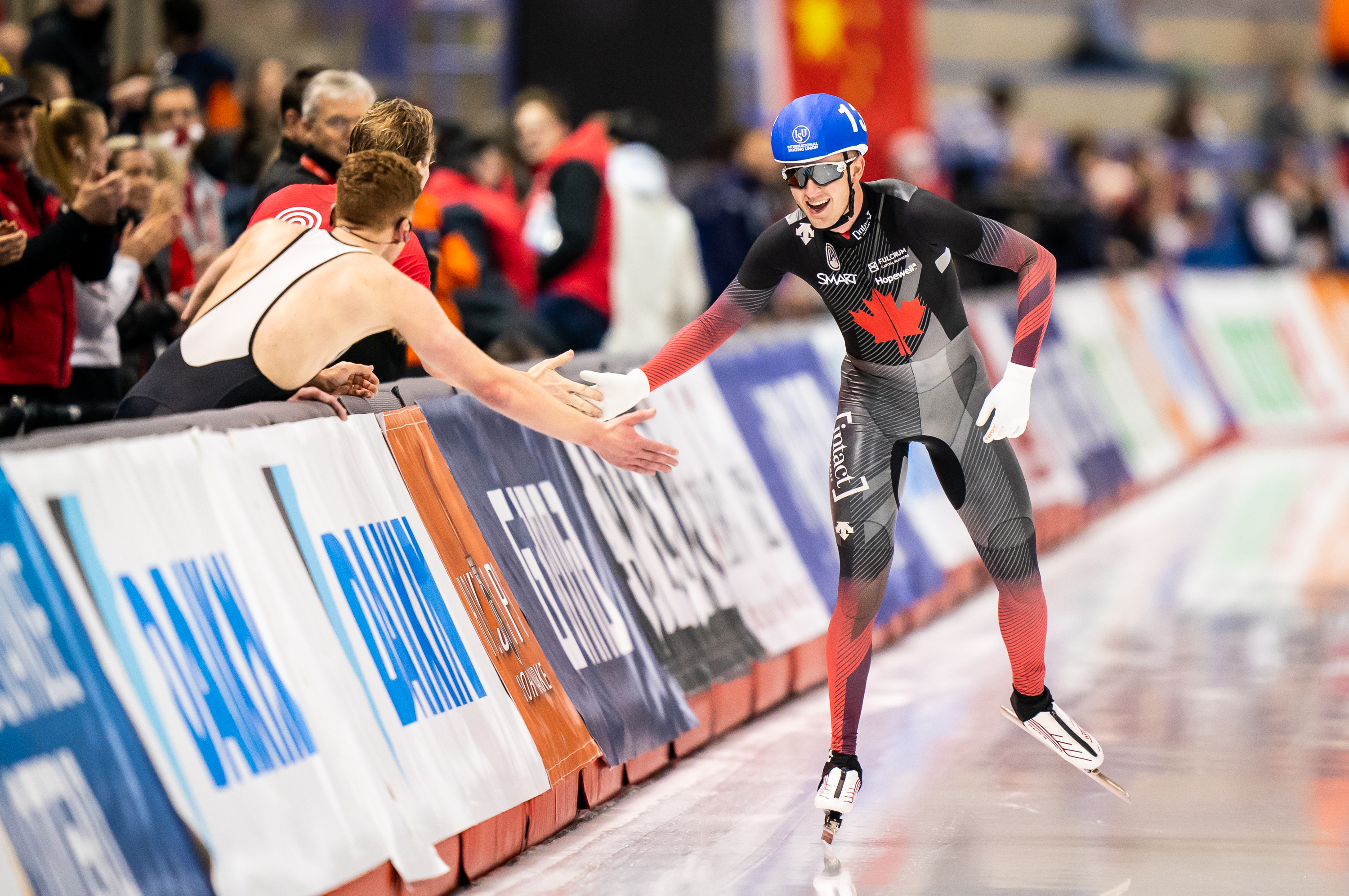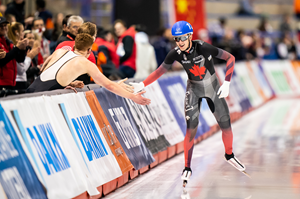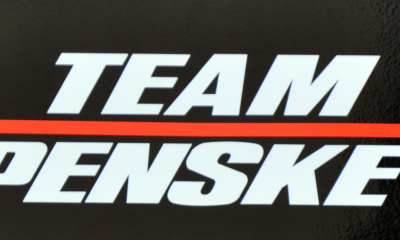Technology
Genstar-backed sports software providers PlayMetrics and Stack Sports merge
Michael Doernberg, CEO of PlayMetrics, will lead the combined organization as CEO, and Jeff Young, CEO of Stack Sports, will transition to a strategic role as advisor to the board of directors Genstar Capital will be the majority owner of the combined company Genstar Capital portfolio companies PlayMetrics, a Raleigh, North Carolina-based provider of operations […]

- Michael Doernberg, CEO of PlayMetrics, will lead the combined organization as CEO, and Jeff Young, CEO of Stack Sports, will transition to a strategic role as advisor to the board of directors
- Genstar Capital will be the majority owner of the combined company
Genstar Capital portfolio companies PlayMetrics, a Raleigh, North Carolina-based provider of operations management software for youth sports organizations and Stack Sports, a Dallas-based sports organization software provider, have merged. No financial terms were disclosed.
Michael Doernberg, CEO of PlayMetrics, will lead the combined organization as CEO, and Jeff Young, CEO of Stack Sports, will transition to a strategic role as advisor to the board of directors.
Genstar Capital will be the majority owner of the combined company. As part of the transaction, Genstar acquired PlayMetrics from Blue Star Innovation Partners, which had been the company’s lead investor since 2023.
“The combination of PlayMetrics and Stack Sports creates one of the largest sports technology platforms delivering comprehensive, market-leading solutions to clubs, leagues, tournaments, state associations, and governing bodies,” said Eli Weiss, managing partner of Genstar in a statement. “We are thrilled to support this transformative combination.”
Stack Sports was previously called Blue Star Sports.
Ropes & Gray acted as legal counsel and Lazard acted as financial advisor to Genstar. Weil, Gotshal & Manges LLP acted as legal counsel and William Blair acted as financial advisor to BSIP.
Technology
The New Science of Superhumans: The BioSport™ AI System Unlocks Hidden Athlete Potential
CALGARY, Alberta and NEW YORK, July 15, 2025 (GLOBE NEWSWIRE) — In a move that signals a new era in athlete safety and performance science, The BioSport™ Health Inc, a precision health technology company, today unveiled its Global Advisory Board—a diverse group of elite athletes, scientists, and financial leaders—to help guide its upcoming global platform […]

CALGARY, Alberta and NEW YORK, July 15, 2025 (GLOBE NEWSWIRE) — In a move that signals a new era in athlete safety and performance science, The BioSport™ Health Inc, a precision health technology company, today unveiled its Global Advisory Board—a diverse group of elite athletes, scientists, and financial leaders—to help guide its upcoming global platform launch set for Fall 2025.
In the high-stakes world of elite sports, the difference between triumph and tragedy can hinge on a single, unseen biological flaw. A hidden cardiac risk. A lingering inflammation. A genetic predisposition to injury. These silent threats have ended promising careers and lives—sometimes on live television, in front of millions. Despite decades of progress in training, sports medicine, and wearables, athletes in America and around the world are still falling victim to the same recurring issues: overexertion injuries, cardiac complications, and unidentified physical strengths or weaknesses. Coaches often guess at recovery timelines. Team selections rely on surface performance metrics. Even top athletes rarely know what their bodies are truly built for—or how to protect that biological gift.
Built on a foundation of genomics, microbiome analysis, and artificial intelligence, The BioSport™’s platform promises to tackle some of the most urgent and persistent problems in athletics:
- Overexertion-related injuries, including ACL tears, muscle breakdown, and stress fractures.
- Sudden cardiac events, still the leading cause of death among athletes during play.
- Inequities in athlete selection, driven by outdated performance metrics.
- And the widespread lack of awareness around an athlete’s true biological potential.
“Despite all the technology on the sidelines, athletes are still breaking down,” said Dr. Anmol S. Kapoor, a Cardiologist and Founder of Kapoor Wealth Partners, a next-generation wealth advisory and investment firm from Abu Dhabi. “We’ve been treating symptoms and guessing recovery times. What we need is a biological blueprint—customized care based on what each athlete’s body is built for. That’s what The BioSport™ delivers.”
A Precision Platform for the Future of Sport
At the core of The BioSport™ platform is the BioFit Score, a patent-pending tool that analyzes over 15,000 human genetic variants alongside gut microbiome data to evaluate:
- Injury risk
- Recovery capacity
- Cardiac predispositions
- Endurance and power potential
- Mental stress markers
- Hormonal and inflammatory states
This information is synthesized by PanOmiQ™ of BioAro Inc, World’s Fastest AI powered MultiOmics Platform, integrated with wearable data (HRV, sleep, workload), and delivered through easy-to-use dashboards and athlete mobile apps.
The goal: to empower athletes, coaches, and medical teams to make real-time, precision-based decisions around training, nutrition, rest, and risk. Using AI and data from wearables, The BioSport™ transforms these layers into real-time reports and recommendations. The result? Coaches and athletes can adjust training loads, spot warning signs, and optimize nutrition based on the athlete’s unique biology—not generic formulas.
“Think of it as GPS for your body,” says Patrick Kirkwood, CEO of The BioSport™ Health Inc. “We give athletes a roadmap to reach their peak—and avoid the cliffs.”
A Global Board with Deep Roots in Sport, Science & Strategy
To support this ambitious rollout, The BioSport™ has appointed a powerhouse Global Advisory Board:
- Grant Fuhr – NHL Hall of Fame goalie and 5x Stanley Cup Champion
- Christina Nathalie Smith, OLY – Olympic bobsleigh pioneer
- Nik Lewis – CFL Hall of Famer and all-time receptions leader
- Paul O’Donoghue – Energy and tech entrepreneur, corporate strategist
- H.E. Prof. Dr. Zahid Haque – Global sports diplomat and anti-doping advocate
- Kurt Soost, CFA – Veteran investment executive and capital markets expert
- Nick Wilson, OLY – Olympian and high-performance strategist
“This is the kind of platform that changes lives,” said Grant Fuhr, NHL Hall of Famer goalie, who faced the pressures of elite sport firsthand. “It’s not just about performance—it’s about knowing your risks before it’s too late. We didn’t have this in my day. Athletes need it now. The BioSport™ is the innovation I wish we had when I played.”
Even with the rise of wearable devices, training apps, and sports science labs, there’s a major blind spot: biological individuality.
According to recent U.S. sports medicine data:
- Overexertion injuries account for over 35% of sports-related medical visits.
- Sudden cardiac death remains the leading cause of mortality in youth athletes, particularly in high-intensity sports.
- Early specialization has been directly linked to burnout and chronic pain by late adolescence.
“There’s no one-size-fits-all in human biology,” said Patrick Kirkwood. “Two athletes may look identical on paper, but one could be biologically prone to injury or cardiac strain. That’s why this platform matters—it brings clarity to the chaos.”
The company aims to set a new global standard in sports health, not just for professionals but for youth, amateur, and collegiate athletes as well. The BioSport™ platform is currently in pilot use with select professional clubs, Olympic training centers, and youth academies. A full-scale launch is scheduled for Fall 2025, targeting markets across North America, Europe, the Middle East, and Asia-Pacific.
Platform features include:
- Genomic and microbiome test kits (clinic or home use)
- AI-integrated dashboards for athletes and coaches
- Mobile apps for personalized recovery and planning
- Physician portals and teleconsultation access with genomics specialists
- Wearable integrations for continuous performance monitoring
“The BioSport™ isn’t just a health tool—it’s a safety net for high-risk individuals,” added Dr. Kapoor. “We’re building a future where no one gets sidelined because of something preventable.”
The BioSport™ isn’t just helping athletes chase gold—it’s helping them keep their careers, their dreams, and their futures intact. It’s about Powering Superhumans™.

About The BioSport™
The BioSport™ is a Canada- and U.S.-based next generation sports health technology company focused on enhancing athlete performance and longevity through genomics, microbiome intelligence, and AI-powered personalization. The platform is backed by proprietary IP, global partnerships, and a vision to create the new global standard in athlete health intelligence.
The BioSport™ Brand Ambassador

Hayden Mayeur
Two-Time World Championship Medalist & Canada’s Reigning Men’s Mass Start Champion
Media Contact
media@theBioSport.com
www.theBioSport.com
Photos accompanying this announcement are available at
https://www.globenewswire.com/NewsRoom/AttachmentNg/4cf136e9-2de5-4dbf-9cf1-91b3d4a6ff73
https://www.globenewswire.com/NewsRoom/AttachmentNg/d90ca089-d861-4ad1-aa94-a106e3bb5f1b

Powering Superhumans

The BioSport tagline
The BioSport™ Brand Ambassador

Hayden Mayeur Two-Time World Championship Medalist & Canada’s Reigning Men’s Mass Start Champion
Technology
New Plug and Play in Frisco part of city’s vision to become major pull for VC dollars
Frisco’s vision of becoming a hub for tech startups seemed far-fetched 10 years ago, when Aditya Varanasi was first trying to launch his digital marketing company. That hope, he says, is now far more credible. The tech sector has boomed in recent years, and Frisco leaders say the city is ready to capitalize on that […]

Frisco’s vision of becoming a hub for tech startups seemed far-fetched 10 years ago, when Aditya Varanasi was first trying to launch his digital marketing company. That hope, he says, is now far more credible.
The tech sector has boomed in recent years, and Frisco leaders say the city is ready to capitalize on that growth.
At a ribbon-cutting event in May, Mayor Jeff Cheney welcomed Silicon Valley-based Plug and Play Tech Center to Frisco. The accelerator and venture capital firm will partner with Frisco to manage the city’s 6,200-square-foot innovation hub and co-working space.
“We really wanted to lean into having our own startup culture in Frisco,” Cheney said.
Varanasi’s company, Awarity, is among the dozens of startups that hope to benefit from the hub, located at Baylor Scott & White’s sports therapy and research center.
“You’re slowly starting to see the snowball pick up,” Varanasi said.
Frisco’s startup-friendly identity has only recently gained momentum, Varanasi said. Plug and Play, which also has an office in McKinney, is a big part of that push.
The city’s partnership with Plug and Play is part of a mission to make Frisco a major attraction for venture capital dollars. Earlier this year, the Frisco Economic Development Corp. announced startup industry expert Jon Nordby as its first-ever venture capitalist in residence.
“Frisco represents a rare convergence of resources, talent, and access which creates the perfect environment to redefine investing in the central United States,” Nordby said in a statement earlier this year.
Startups accepted into Plug and Play’s accelerator programs get access to networking events, mentorship opportunities, as well as office space for collaboration and workshops.
The new Plug and Play location will be the first to be focused on sports tech, but will also host programs for financial tech companies.
Frisco is home to more than 500 startups and 130 of those are in the sports tech industry, according to the city.
David Steele, director of Plug and Play Frisco, said accelerator programs will be able to accommodate as many as 50 companies each year.
“You look at Frisco, Sports City USA. You have the Mavericks and the Stars playing in downtown Dallas. Look at everything that happens in Arlington,” Steele said. “I think the entire D-FW market as a whole is kind of this sports mecca.”
In 2020, Adam McAbee co-founded StadiumDrop, a mobile delivery app that allows people at live sports events to order merchandise, food and beverages from concession stands from their seats.
McAbee credited the Cowboys headquarters, the PGA of America and Toyota Stadium to city leaders’ vision to make Frisco the “center of sports.”
“From a sports tech aspect of it, I can see Frisco being the hub,” McAbee said.
Startups like Awarity, StadiumDrop and others are also finding opportunities for partnerships with colleges and universities in North Texas to find talent.
David Cauthron, co-founder chief technology officer of financial technology company Outpave, said the company was pleasantly surprised to find a large population of people willing to work at tech startups.
“It’s great to pull engineering resources that you don’t have to go to Silicon Valley to get,” Cauthron said.
Varanasi said he hopes the Frisco Plug and Play’s reputation in the tech industry will attract more entrepreneurs to the area and inspire the collaboration that fueled the success of other startup hubs around the country.
“Take the dollars out of the picture for a second, and what you’ve got in these places is all the like-minded individuals,” Varanasi said.
Technology
This five-star Garmin smartwatch is a steal at its new record-low price on Amazon
We test all of the best smartwatches and are always keeping our eyes out for a deal that will save you money on a standout model. Today, I’ve spotted a great deal for runners, as you can snag the Garmin Forerunner 955 at Amazon for $349.99 (was $449.99). This record-low price makes the impressive smartwatch […]
We test all of the best smartwatches and are always keeping our eyes out for a deal that will save you money on a standout model. Today, I’ve spotted a great deal for runners, as you can snag the Garmin Forerunner 955 at Amazon for $349.99 (was $449.99).
This record-low price makes the impressive smartwatch more affordable than ever and is a surprising find with Amazon Prime Day firmly in the rearview mirror as this price cut wasn’t available last week. With the summer upon us, now’s the perfect time to up your running game with what remains one of the top running watches. Even though it’s a little older now, it’s still an impressive and hugely capable option.
Today’s best Garmin Forerunner 955 deal
In our review of the Solar version of the Garmin Forerunner 955, we gave the smartwatch an incredible five out of five stars. At the time of writing, we also labelled it as one of the best Garmin watches to date. Despite being superseded by the Forerunner 965, the 955 is still a very capable smartwatch with an excellent 15-day battery life.
The smartwatch delivers GPS, coaching plans, music and route maps with the ability to handle smartwatch notification services as well as workout-specific tools. This is an outstanding exercise companion that is a perfect fit for runners, triathletes, and enthusiast adventurers alike.
If you’re not keen on Garmin and would prefer an Apple alternative, then we have a dedicated guide to the best Apple watches. There are also all the best Android smartwatches which might tickle your fancy.
Technology
Harmonic to Spotlight Video Streaming, Broadcast Delivery Innovations at IBC2025
SAN JOSE, Calif.—Harmonic will showcase video streaming and broadcast delivery innovations during IBC2025, set for Sept. 12-15 at the RAI Amsterdam Convention Center. The company will spotlight hybrid cloud and on-premises streaming solutions, artificial intelligence-driven workflows, ad insertion technologies and advancements in live sports streaming. The solutions enable broadcasters and service providers to elevate viewer […]

SAN JOSE, Calif.—Harmonic will showcase video streaming and broadcast delivery innovations during IBC2025, set for Sept. 12-15 at the RAI Amsterdam Convention Center.
The company will spotlight hybrid cloud and on-premises streaming solutions, artificial intelligence-driven workflows, ad insertion technologies and advancements in live sports streaming. The solutions enable broadcasters and service providers to elevate viewer engagement, unlock new monetization opportunities and improve operational efficiency across their video infrastructure, the company said.
Technology
Major League Soccer To Highlight Emerging Tech During 2025 MLS All-Star on July 22-23
Major League Soccer are piloting innovations that are transforming fan engagement, athlete performance, match officiating and content production. The league’s long-term strategy focuses on embedding AI, advanced wearables, immersive digital tools, and data-driven analytics directly into the fabric of the sport—positioning MLS as a proving ground for technologies shaping the future of soccer and the […]

Major League Soccer are piloting innovations that are transforming fan engagement, athlete performance, match officiating and content production. The league’s long-term strategy focuses on embedding AI, advanced wearables, immersive digital tools, and data-driven analytics directly into the fabric of the sport—positioning MLS as a proving ground for technologies shaping the future of soccer and the broader sports industry.

This leadership will be on full display during MLS All-Star Week in Austin, Texas, where the league will host its Future of the Game Showcase on July 22 and 23 at Q2 Stadium. The Showcase offers a rare in-game demonstration of breakthrough technologies and direct access to the innovators shaping the next generation of the sport.
More than a vision, this work is already in motion. MLS is piloting emerging technologies in high-profile, live environments, accelerating the sport’s evolution and delivering real value to fans, players, and clubs. From personalized fan experiences to new performance insights and advanced production tools, these efforts are expanding what’s possible both on and off the field.
Through its Innovation Lab and direct partnerships with emerging startups and technology pioneers, MLS is cultivating a robust pipeline of innovation that is delivering meaningful impact and strengthens MLS’ role as a sports tech incubator This work reinforces the league’s leadership in global soccer and provides tangible benefits to clubs, players, and fans — enhancing performance insights, creating more personalized and immersive experiences, and unlocking new opportunities at every level of the sport.
MLS’ efforts complement the league’s landmark partnership with Apple. Together, MLS and Apple are global trailblazers in sports streaming, driving innovations in production and fan experience while deepening connections with the league’s young, digitally native audience.
“We believe that through innovation we can define the future of soccer and sport,” says Chris Schlosser, SVP of Emerging Ventures, Major League Soccer. “At MLS, we are committed to testing and integrating emerging technologies that elevate athletes, transform fan experiences, and push the game forward. The Future of the Game Showcase is a unique opportunity to see this work in action—through live demonstrations and partnerships with some of the most forward-thinking companies in sports technology.”
Future of the Game Showcase — Participating Technologies and Companies:
- EDGE Sound Research: Intelligent audio infrastructure for live entertainment that automatically isolates sound objects to create personalized, immersive experiences. Throughout the showcase EDGE Sound Research will be showing a live demo of immersive sound that is designed to enhance the stadium experience.
- OLIVER Sports: GPS trackers powered by AI that capture athletic and soccer-specific metrics—including ball interactions—to deliver actionable insights that help coaches optimize training and scout top talent, while enabling players to enhance performance and reduce injuries. Players participating in the MLS NEXT All-Stars Game presented by Allstate will be wearing the devices that will show data and insights from the match.
- Soccerment: A sports technology company leveraging AI, wearable devices, and advanced analytics to enhance player development, scouting, and performance analysis. Soccerment will showcase their connected devices, data from the MLS NEXT All-Star game presented by Allstate, and AI Content Generation capabilities.
- Wicket: Facial authentication platform leveraging computer vision technology to enable seamless event experiences with facial ticketing, payments, access control, and credentialing. Onsite at the Future of the Game Showcase, Wicket will be demoing their facial ticketing and payments systems for guests.
- Camb.AI: AI dubbing platform that instantaneously translates content into any language while preserving the original speaker’s voice and tone—bringing any game to life for global audiences. Camb.AI will be providing real-time audio translation into multiple languages throughout the MLS All-Star Skills Challenge presented by AT&T and MLS All-Star Game.
- Lubu Technologies: AI-powered wearable solutions that track force impacts, cleat performance, and foot pressure to improve athletic performance and recovery in real time. Lubu Technologies will be supporting the MLS NEXT All-Star game and showing output from the match.
- Sportec Solutions: MLS’ Data Creation Partner will present AI-driven technologies designed to enhance fan engagement and storytelling including AI Live Ticker and Data Story Finder tools along with innovative broadcast visualizations.
- OneCourt: A tactile broadcast that transforms gameplay into trackable vibrations, allowing fans with visual disabilities to experience the game through touch. OneCourt’s system will be showcased live during the MLS All-Star Game.
Technology
Legal and Commercial Considerations – Publications
Insight July 15, 2025 The sports industry is undergoing a transformative shift as data becomes an increasingly important part of commercial strategy. From enhancing player performance to unlocking new revenue streams, data’s role in transactions—whether sponsorship deals, talent recruitment, or venue management—could be pivotal. This Insight explores the strategic […]

Insight
July 15, 2025
The sports industry is undergoing a transformative shift as data becomes an increasingly important part of commercial strategy. From enhancing player performance to unlocking new revenue streams, data’s role in transactions—whether sponsorship deals, talent recruitment, or venue management—could be pivotal. This Insight explores the strategic use of data in sports, the legal considerations it could introduce, and best practices for mitigating risks while maximising value.
THE GROWING IMPORTANCE OF DATA IN SPORTS TRANSACTIONS
Data is becoming a critical asset for sports organisations, driving decisions both on and off the field. Data is gathered from multiple sources: live game observations and TV broadcasts supply real-time statistics and tactical insights, while online platforms track fan engagement through social media interactions and digital behaviour. Sensors and wearable devices monitor athlete performance metrics like heart rate, speed, and biomechanics to tailor training and reduce injury risks. Historical records, such as archived game footage, seasonal trends, and past fan activity, provide context when benchmarking progress and predicting outcomes.
Together, these sources create a comprehensive data ecosystem, blending real-time and historical insights with athlete biometrics and fan analytics. These insights enable teams, leagues, and sponsors to refine strategies, from tailoring training regimens to personalising fan experiences.
Data-sharing clauses are increasingly being negotiated to offset sponsorship costs and other expenditures. Sponsors may seek access to fan demographics or purchasing habits to measure campaign effectiveness, which access teams could monetise without compromising sensitive information. The challenge lies in structuring agreements that balance commercial opportunities with legal and ethical safeguards.
STRATEGIC DATA SHARING IN SPONSORSHIP DEALS
Modern sponsorship agreements now routinely incorporate data-sharing provisions, reflecting the growing recognition of data as a value driver. For instance, a professional sports team partnering with a corporate sponsor can grant access to anonymised fan engagement metrics derived from ticket purchases and in-stadium activations. This data would enable a sponsor to refine targeted marketing campaigns, ultimately attributing a measurable increase in customer conversions to the partnership.
Such arrangements require thorough drafting to avoid overreach. For example, there could be requests from sponsors for access to player performance analytics, including biometric data collected during training sessions.
This may be considered too far, and counteroffers limiting shared data to aggregated fan demographics and anonymised social media interactions—ensuring compliance with athlete privacy agreements and league regulations—may be more palatable; it remains important to define data boundaries upfront, particularly when balancing sponsor expectations with ethical obligations.
SPORTS BETTING
Data can play a transformative role in the sports betting landscape, enabling innovations such as in-play betting where real-time data allows sportsbooks to create dynamic markets for wagers placed as a game’s events unfold. This immediacy enhances engagement by letting bettors react to live developments, such as a pivotal play or shifting momentum.
To ensure fairness and competitiveness, sportsbooks depend on accurate, timely data to set precise odds and design betting markets that reflect real-time conditions, empowering users to make informed decisions.
Beyond traditional wagering, data can be equally vital in fantasy sports, where participants rely on detailed player statistics, injury updates, and performance trends to craft winning strategies. Together, these applications illustrate how data not only fuels the technical infrastructure of sports betting but also enriches user experiences through transparency, strategic depth, and adaptability.
ENHANCING PLAYER PERFORMANCE AND TRAINING
Data-driven approaches are also revolutionising how athletes train and perform, enabling teams to refine player development with unprecedented precision. Performance analysis lies at the core of this transformation, as coaches and analysts leverage player statistics to dissect strengths, diagnose weaknesses, and craft tailored game strategies.
Beyond traditional metrics, wearable devices now capture biometric data such as heart rate variability, sleep patterns, and exertion levels, allowing teams to optimise training intensity, minimize injury risks, and ensure athletes operate at peak physical condition. Meanwhile, GPS trackers and motion-sensing technologies generate positional and movement data (tracking speed, acceleration, and spatial positioning) to evaluate tactical decisions and physical efficiency in real time.
Complementing these tools, advanced analytics platforms simulate game scenarios, enabling teams to test strategies in virtual environments and prepare for high-pressure situations without physical strain. Together, these innovations create a holistic framework for athlete development, blending science and strategy to elevate performance while safeguarding long-term health.
TECHNOLOGICAL INNOVATIONS AND LEGAL COMPLEXITIES
Emerging technologies such as wearable devices and AI-driven analytics tools can reshape sports transactions. Wearables, for example, track real-time physiological data to optimise athlete performance and reduce injury risks. While these tools offer competitive advantages, they also introduce legal challenges. Biometric data, classified as sensitive under regulations such as the EU’s General Data Protection Regulation (GDPR), requires explicit athlete consent and robust encryption protocols to prevent misuse.
AI applications extend beyond player performance, influencing operational decisions such as ticket pricing and venue management. A European football club recently leveraged AI to analyse concession sales patterns and identified peak demand periods for specific products. By renegotiating terms with third-party vendors to access queue-time data, the club optimised kiosk placements, reducing wait times and increasing revenue by 15%. Such innovations highlight the need for contracts that address data ownership, usage rights, and third-party dependencies.
ETHICAL AND REGULATORY COMPLIANCE IN DATA GOVERNANCE
The ethical implications of data use in sports are increasingly under scrutiny. A high-profile case involving a European football club illustrates this tension: the club faced regulatory penalties after deploying AI tools to scout talent without securing explicit consent from players. The incident highlighted the risks of conflating performance analytics with personal privacy rights, particularly under frameworks like the EU AI Act, which mandates transparency in automated decision-making.
Compliance can extend beyond privacy laws. In mergers and acquisitions, due diligence should now include audits of data practices. A recent acquisition of a sports tech startup revealed undisclosed liabilities when the target’s AI recruitment tools were found to use noncompliant datasets, exposing the buyer to potential GDPR violations. Such scenarios emphasise the need for rigorous checks on data provenance, algorithmic bias, and regulatory alignment.
OPERATIONAL DATA AND FAN ENGAGEMENT STRATEGIES
Operational data, which can be often overlooked in traditional agreements, could hold significant untapped value. Stadiums equipped with Internet of Things sensors generate vast datasets on crowd movement, concession sales, and security logistics. Data can empower sports organisations to deepen fan engagement and maximize revenue through targeted strategies.
By analysing fan preferences, teams can craft hyper-personalized marketing campaigns, refine ticket pricing models, and identify high-value season ticket prospects. In-stadium experiences are enhanced with tailored promotions and dynamic advertising, while digital platforms leverage behavioural insights to deliver customized content.
Central to this approach is customer relationship management–driven loyalty programs, which segment fan profiles to foster long-term connections. Sponsorships also benefit, with data revealing audience demographics and spending habits to align brands with receptive fanbases. Together, these tactics transform raw data into actionable tools for driving both emotional loyalty and financial growth.
Social media sentiment analysis is becoming a staple in sponsorship negotiations. A motorsport team partnered with a beverage brand to analyse real-time fan reactions during races, enabling dynamic adjustments to digital advertising content. This approach not only enhanced fan engagement but also provided the sponsor with actionable metrics to justify its investment.
NEGOTIATION STRATEGIES FOR DATA RIGHTS
Effective data governance should begin with precise contractual language. Ambiguous terms such as “data” or “analytics” may lead to disputes, as seen in a case where a sponsor interpreted “broadcast metadata” to include real-time player tracking data. The team resolved the conflict by refining definitions to explicitly exclude biometric and performance metrics, preserving competitive confidentiality.
Key clauses to consider include purpose limitation, which restricts data use to predefined objectives such as marketing analytics, anonymisation requirements mandating aggregation to protect individual privacy, and third-party restrictions prohibiting resale or unauthorised sharing of datasets.
CONCLUSION
As data’s role in sports continues to expand, organisations that strategically harness its potential—while navigating legal and ethical complexities—can gain a competitive edge. By embedding robust governance frameworks into contracts, teams and sponsors can unlock new revenue streams, enhance operational efficiency, and foster deeper fan engagement. The future of sports transactions lies in balancing innovation with accountability, ensuring data serves as a catalyst for growth.
-

 Technology3 weeks ago
Technology3 weeks agoPet fitness and wellness trends for a healthier and happier dog
-

 College Sports3 weeks ago
College Sports3 weeks agoWAC to Rebrand to UAC, Add Five New Members in 2026
-

 College Sports3 weeks ago
College Sports3 weeks agoA new era of Dickinson hockey begins behind the bench – The Dickinson Press
-

 Motorsports2 weeks ago
Motorsports2 weeks agoWhy Cosmetics are Making Up for Lost Time in Women’s Sports
-

 Health3 weeks ago
Health3 weeks agoFlorida assault survivor shares hope for change with new mental health law
-

 Motorsports2 weeks ago
Motorsports2 weeks agoTeam Penske names new leadership
-

 Sports7 days ago
Sports7 days agoNew 'Bosch' spin
-

 Motorsports3 weeks ago
Motorsports3 weeks agoNASCAR This Week – Patriot Publishing LLC
-

 Youtube2 weeks ago
Youtube2 weeks agoBREAKING: NBA MVP Shai Gilgeous-Alexander signs the RICHEST annual salary in league history
-
Health3 weeks ago
McDonald named volleyball assistant coach



























